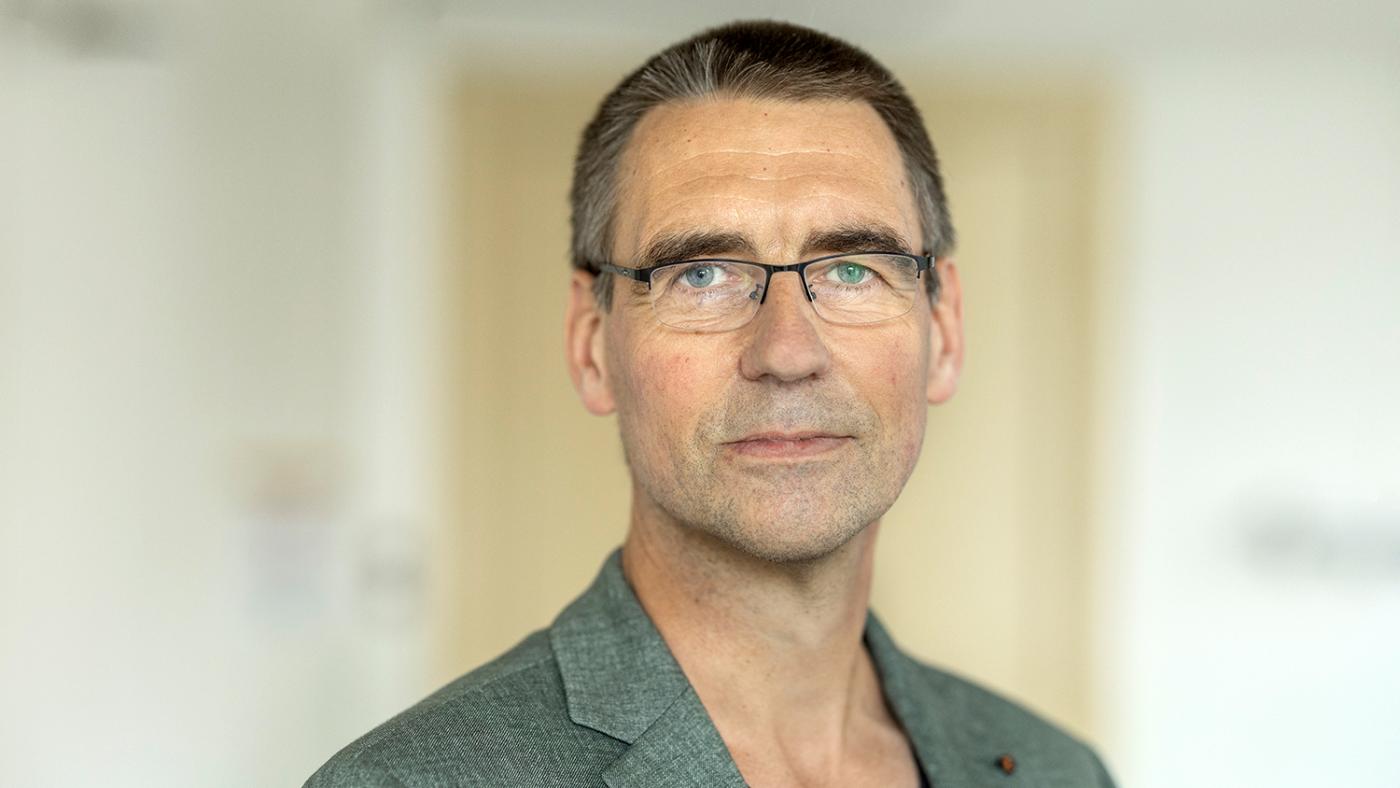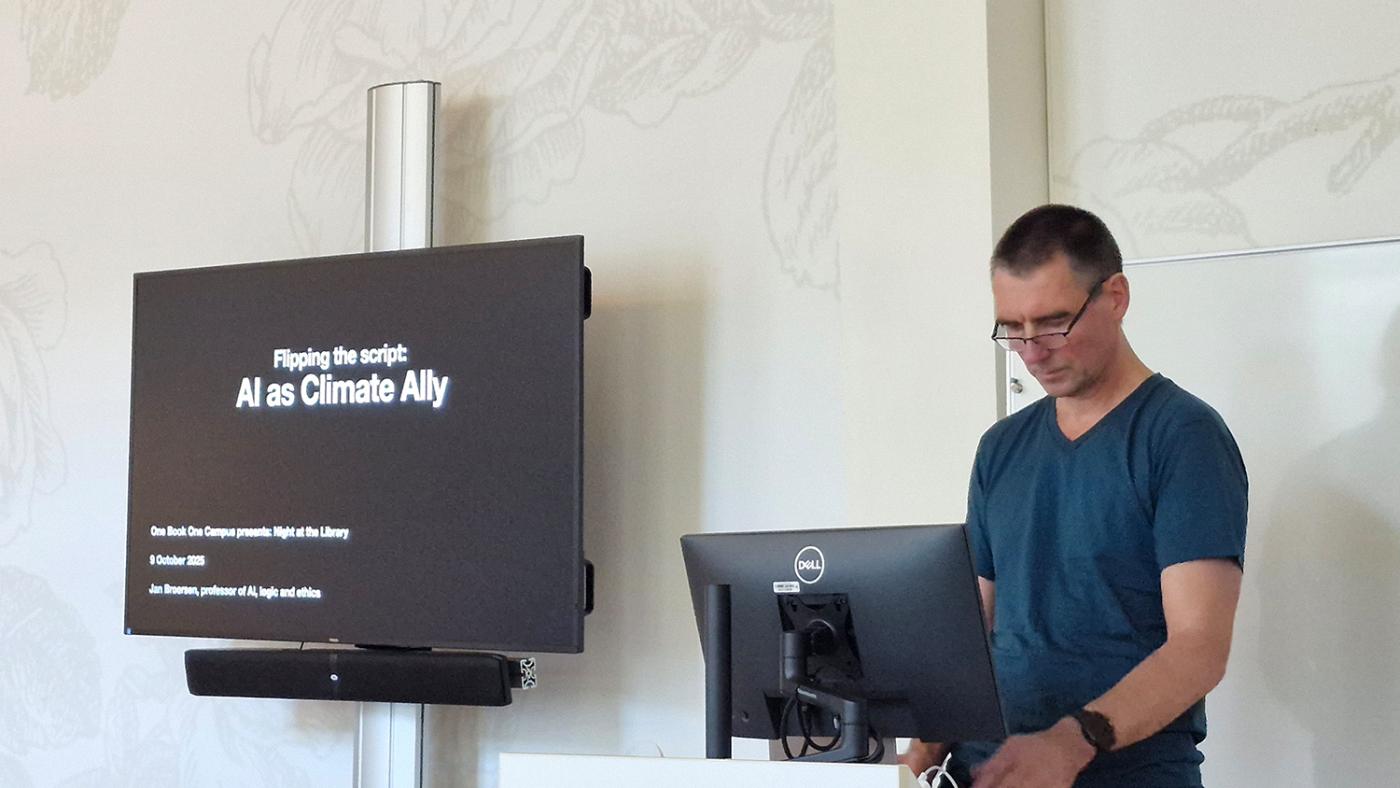Philosophy Professor Jan Broersen:
‘I never thought I’d ever portray AI as a climate ally. Yet, here I am’

“I don’t like to say the same thing everyone else is already saying,” Broersen tells DUB as he meets us up for lunch a few days after his well-attended lecture at the Night at the Library Festival. “I always try to approach things from a different angle.”
This led him to develop the main argument of his lecture: that Generative AI chatbots such as ChatGPT have the potential to make accurate information about climate change more accessible, thereby leading humanity to do more to contain it.
A better knowledge-to-bias ratio
“How many books and texts have you read in your life? No matter how avid a reader you are, that number will never come close to the billions of texts a large language model has been trained on,” he explains. “Humans are therefore a little bit easier to influence, as their opinions are based on much less information.”
According to Broersen, extreme opinions, conspiracy theories, and false narratives tend to be statistically evened out. “Large language models are trained on so much knowledge that biases are somehow outpaced. They can be wrong, but humans tend to be wrong more often,” he says.
Isn’t it possible for a company to train its AI to give certain views or sources more weight? Broersen says that can happen, but it is difficult to do with a large language model such as ChatGPT. After training the model on billions of texts, a company can provide the AI with specific prompts. “That’s when you can try to give it a political leaning, for example. But then you have to fight against all the knowledge the AI already has at that point,” he explains.
As an example, Broersen mentions Elon Musk’s AI bot, Grok, which consistently aligned with the scientific consensus on climate change when it first joined X in 2023. It even named Musk the biggest spreader of climate change misinformation. Now, Grok has reportedly become more inclined to deny climate change than its competitors from OpenAI, Microsoft, and Google.

A climate ally?
Broersen acknowledges the many ways in which AI harms the environment. “I never thought I would ever advocate for AI as a climate ally,” he says. He knows how much energy it uses and that the main tools are in the hands of Big Tech companies, many of whom are now politically aligned with Donald Trump, who removed the United States from the Paris Agreement and promised to “drill, baby, drill”. But he cannot help but also see the bright side.
“It is a positive development that people have been interacting with something that has so much knowledge, and starting to trust it. You can’t trust it on everything, of course, but on average, Generative AI can exert a positive influence on users, especially those immersed in a social media context.”
He hopes that exposure to the scientific consensus on climate change via chatbots will lead to a bottom-up push for action, with people voting for politicians who don’t deny it. But Generative AI can also help the other way around: the more politicians themselves use tools like ChatGPT to review documents, brainstorm, prepare for debates and evaluate the consequences of policy, the more they might be influenced to follow the scientific consensus.
Would this compensate for the massive energy consumption? Broersen doesn’t have the answer to that, but he hopes that a future burst of an “AI bubble” might help to even things out by reducing the number of companies operating in this area and, thus, the energy spent on AI. “Billions and billions are being invested in AI now. I think this is a house of cards that will collapse at some point. What will all these people train their AI tools on? We do produce new data, but not at a pace that matches the investments being made. Many companies will go bankrupt.”
There is no way to predict how things will turn out, but Broersen describes himself as an optimist, citing both philosophical and technical reasons for it. “Karl Popper says that optimism leads to hope, hope leads to action, and action may lead to solutions. This is corroborated by computer science. Algorithms that analyse opportunities can be trained with optimistic values or pessimistic values. The optimistic ones look ahead: if something looks promising, they take that direction. It might be completely wrong, of course, but they are more active as a result.” Optimism might just be a good heuristic for humanity as a whole, he concludes with a smile.
Comments
We appreciate relevant and respectful responses. Responding to DUB can be done by logging into the site. You can do so by creating a DUB account or by using your Solis ID. Comments that do not comply with our game rules will be deleted. Please read our response policy before responding.